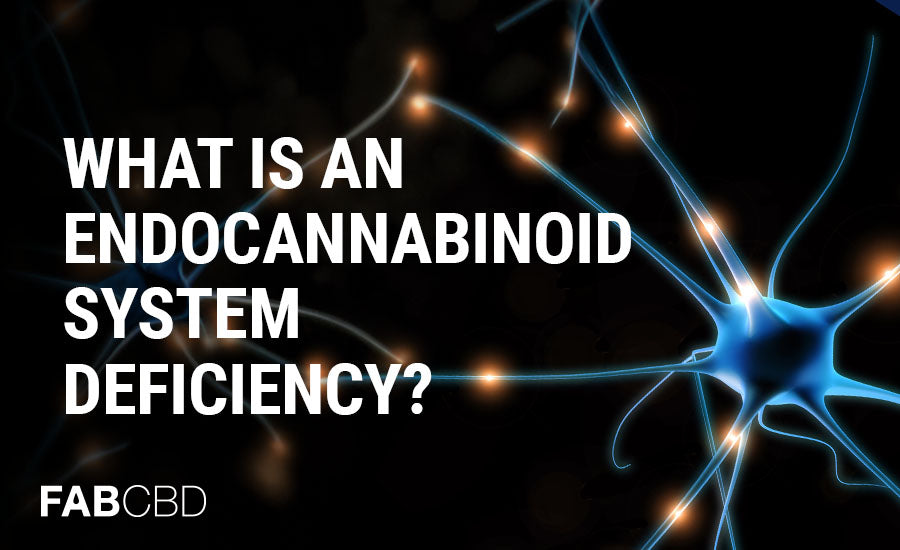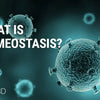The endocannabinoid system is what allows cannabinoids to interact with and affect our bodies.
Comprising receptors, enzymes, and endogenous cannabinoids, this system regulates multiple physiological processes, so what happens when it’s not working the way it should? What are the symptoms? What can you do about it?
Let’s find out.
What is the Endocannabinoid System?
The Endocannabinoid System or ECS is a network of cannabinoid receptors found throughout the body of nearly every animal on earth, including all mammals and humans, that plays a crucial role in maintaining balance and promoting overall wellness.
The ECS consists of three main components:
- Endocannabinoids: The two primary endocannabinoids identified so far produced by the body are anandamide (AEA) and 2-arachidonoylglycerol (2-AG). Endocannabinoids are produced on demand and act as messengers that bind to cannabinoid receptors.
- Cannabinoid Receptors: Two main types of cannabinoid receptors, CB1 and CB2, are found throughout the body. CB1 receptors are primarily located in the central nervous system, including the brain, while CB2 receptors are mainly found in the peripheral nervous system, immune cells, and various organs. These receptors interact with endocannabinoids to regulate physiological processes.
-
Enzymes: Enzymes are responsible for the synthesis and degradation of endocannabinoids. The two main enzymes involved are fatty acid amide hydrolase (FAAH), which breaks down anandamide, and monoacylglycerol lipase (MAGL), which breaks down 2-AG.
The ECS helps regulate a wide range of functions, including mood, appetite, sleep, immune response, and pain sensation. When there is an imbalance in the body, the ECS works to restore homeostasis. The gut microbiome also influences endocannabinoid production and metabolism.
Learn more about the endocannabinoid system.
What is an Endocannabinoid System Deficiency?
Clinical endocannabinoid deficiency (also CECD or CED), is a theoretical concept where the body experiences inhibition and can’t produce enough endocannabinoids, affecting the body’s endocannabinoid tone and potentially leading to a multitude of diseases and issues.
Keep in mind, the endocannabinoid system itself was just discovered in the 1990s, so endocannabinoid system deficiency is an even newer concept, having only been theorized since 2004 by Dr. Ethan Russo EB in his paper “Clinical Endocannabinoid Deficiency Reconsidered: Current Research Supports the Theory in Migraine, Fibromyalgia, Irritable Bowel, and Other Treatment-Resistant Syndromes”, so we still know very little about it and how different levels of endocannabinoids affect the body.
However, some studies have suggested that ECS deficiency may contribute to problems with chronic pain, fibromyalgia, and irritable bowel syndrome among others. ECS dysfunction has also been implicated in worsening conditions like multiple sclerosis, obesity, and dysfunctions in the TRPV1 receptors which are involved in pain perception and inflammation.Still, a lot of studies are needed before we can reach any conclusive results.
ECS Deficiency: Possible Signs and Symptoms
Here are some potential signs and symptoms of a possible ECS deficiency:
Digestive Issues
Studies have linked endocannabinoids with colon function, suggesting that ECS deficiency could influence certain digestive issues like irritable bowel syndrome. If this theory is correct, it would indicate that some people with IBS or other digestive issues may have an ECS deficiency.
Stress Response
Studies have shown that the endocannabinoid AG-2 modulates stress and anxiety response, so mood disorders, like anxiety and depression, have been linked to ECS dysfunction. The endocannabinoid system influences neurotransmitter activity in the brain, and an imbalance may contribute to mood-related challenges.
Migraines
Studies have explored the connection between endocannabinoid system dysfunction and migraines, suggesting that individuals experiencing frequent migraines may be more prone to an imbalance in endocannabinoid signaling.
Fibromyalgia
Fibromyalgia, characterized by widespread musculoskeletal pain, is another condition where disruptions in the endocannabinoid system have been theorized. There is growing evidence to suggest a link between fibromyalgia and ECS deficiency, potentially resulting in increased pain and fatigue associated with this disease.
Sleep Problems
The ECS plays a role in regulating sleep-wake cycles, so disturbances in the endocannabinoid system may contribute to insomnia or other sleep-related issues.
Possible Treatments for ECS Deficiency
Here are some potential treatments for ECS deficiency:
Maintain a Good Diet
Certain dietary and lifestyle factors can influence the endocannabinoid system. Consuming foods rich in omega-3 fatty acids, such as fatty fish and flaxseeds, can support endocannabinoid production since they are crucial for endocannabinoid production.
Exercise Regularly
Regular physical activity has been shown to positively impact the endocannabinoid system, since exercise stimulates the production of endocannabinoids, contributing to a healthier and more robust ECS.
This suggests that regular exercise could help support ECS and potentially alleviate ECS deficiencies.
Cannabinoid Supplements
Phytocannabinoids are compounds found in the cannabis plant that closely resemble endocannabinoids produced by the human body. Cannabidiol (CBD) and tetrahydrocannabinol (THC) are two well-known phytocannabinoids used along with different terpenes in cannabinoid supplements.
CBD products such as CBD oil and CBD gummies increase the level of cannabinoids in your body, and could potentially help with an ECS deficiency.
Final Thoughts
Although endocannabinoid deficiency is still being studied, we can see how it might cause mental and gastrointestinal issues, as well as issues with the immune system and other areas threatening the well-being of some people.
Luckily, there are more and more pharmacological studies and discoveries leading to more ways to improve the lives of people living with this deficiency.
Endocannabinoid System Deficiency FAQs
Here are the answers to common questions on ECS deficiency:
How do you fix endocannabinoid deficiency?
Because endocannabinoid system deficiency is a new concept that requires more study to be fully understood, there is no proven “fix” for it. However, incorporating phytocannabinoids like CBD, adopting a balanced diet rich in omega-3 fatty acids, engaging in regular exercise, managing stress, and getting sufficient sleep are potential ways to support the endocannabinoid system, all along with medical intervention.
How can I activate my endocannabinoids naturally?
Foods rich in omega-3 and omega-6 fatty acids such as nuts and seeds can increase ECS activity. Regular physical activity has been shown to increase endocannabinoid levels, along with practices like meditation, yoga, and deep breathing to help regulate stress, positively influencing the endocannabinoid system.
What are the symptoms of endocannabinoid system deficiency?
The symptoms associated with endocannabinoid system deficiency are still being studied. However, some conditions have been suggested to potentially involve ECS dysfunction, including migraines, fibromyalgia, irritable bowel syndrome (IBS), anxiety, depression, chronic pain, and sleep disorders.
Is there a test for endocannabinoid deficiency?
As of now, there isn't a standardized or widely accepted test specifically for endocannabinoid deficiency. Healthcare professionals may consider a combination of clinical assessments, symptom evaluation, and, in some cases, genetic or biochemical markers to make informed judgments about ECS function.







